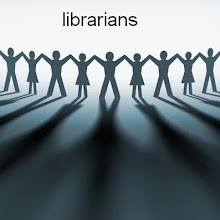Freedom...
A review is warranted considering the current political climate. CCL
STATEMENT ON FREEDOM AND INTELLECTUAL FREEDOM, IFLAsource:IFLAIFLA (The International Federation of Library Associations and Institutions) supports, defends and promotes intellectual freedom as defined in the United Nations Universal Declaration of Human Rights.
IFLA declares that human beings have a fundamental right to access to expressions of knowledge, creative thought and intellectual activity, and to express their views publicly.
IFLA believes that the right to know and freedom of expression are two aspects of the same principle. The right to know is a requirement for freedom of thought and conscience; freedom of thought and freedom of expression are necessary conditions for freedom of access to information.
IFLA asserts that a commitment to intellectual freedom is a core responsibility for the library and information profession.
IFLA therefore calls upon libraries and library staff to adhere to the principles of intellectual freedom, uninhibited access to information and freedom of expression and to recognize the privacy of library user.
IFLA urges its members actively to promote the acceptance and realization of these principles. In doing so, IFLA affirms that:
Libraries provide access to information, ideas and works of imagination. They serve as gateways to knowledge, thought and culture.
Libraries provide essential support for lifelong learning, independent decision-making and cultural development for both individuals and groups.
Libraries contribute to the development and maintenance of intellectual freedom and help to safeguard basic democratic values and universal civil rights.
Libraries have a responsibility both to guarantee and to facilitate access to expressions of knowledge and intellectual activity. To this end, libraries shall acquire, preserve and make available the widest variety of materials, reflecting the plurality and diversity of society.
Libraries shall ensure that the selection and availability of library materials and services is governed by professional considerations and not by political, moral and religious views.
Libraries shall acquire, organize and disseminate information freely and oppose any form of censorship.
Libraries shall make materials, facilities and services equally accessible to all users. There shall be no discrimination due to race, creed, gender, age or for any other reason.
Library users shall have the right to personal privacy and anonymity. Librarians and other library staff shall not disclose the identity of users or the materials they use to a third party.
Libraries funded from public sources and to which the public have access shall uphold the principles of intellectual freedom.
Librarians and other employees in such libraries have a duty to uphold those principles.
Librarians and other professional libraries staff shall fulfil their responsibilities both to their employer and to their users. In cases of conflict between those responsibilities, the duty towards the user shall take precedence.


0 Comments:
Post a Comment
<< Home